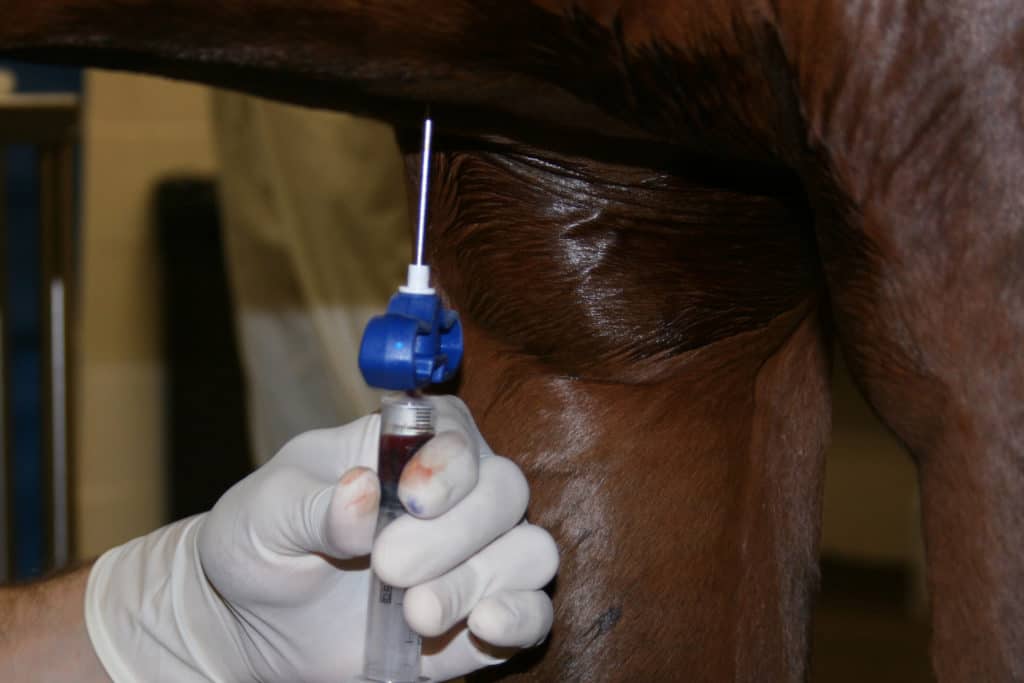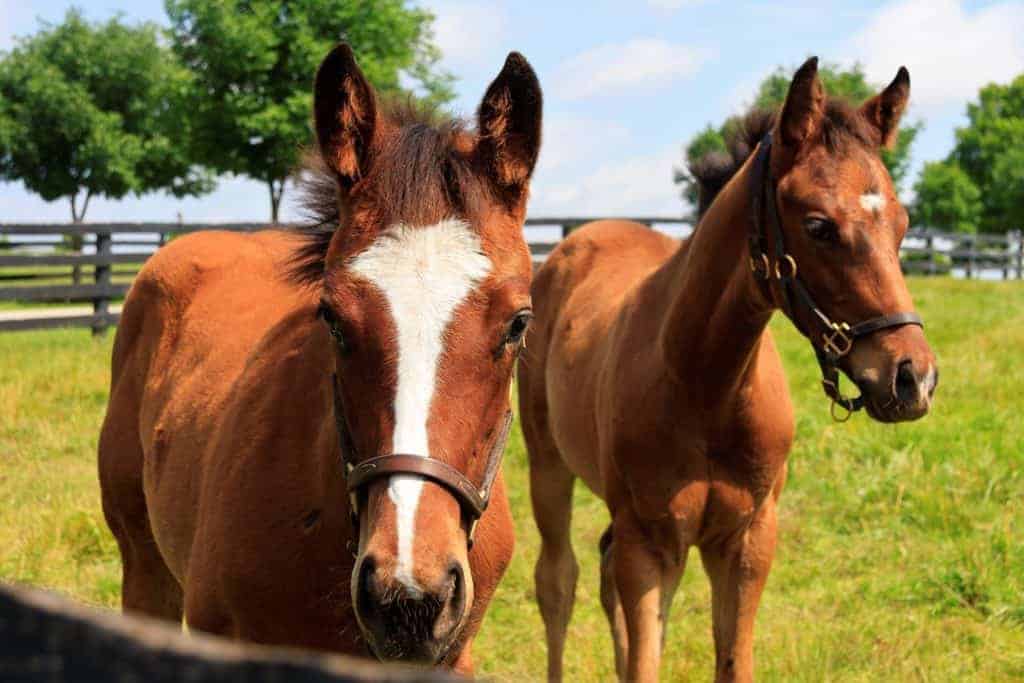
UK Graduate Student Spotlight: Pouya Dini, DVM, PhD
Dini hopes his current research projects will help improve the understanding of equine placental development.
Horse breeding from planning through foal care

Dini hopes his current research projects will help improve the understanding of equine placental development.

A Kentucky Thoroughbred farm is reaping the benefits of healthier mares and foals after making horse pasture renovations over the past year with guidance from University of Kentucky personnel.
The symposium and dinner will take place Thursday, Sept. 20, from 4-7:30 p.m., at Malone’s Prime, in Lexington, Kentucky.

Routine horse vaccinations are one of the easiest and most efficient ways to protect equids’ health against potentially fatal infectious diseases.

Think botulism can’t happen to your horses? Think again. An owner describes her mare’s battle with the deadly disease.

Learn how to manage this incurable disease that causes debilitating lameness in horses.

Researchers found that 90% of stem-cell-cloned foals were “completely healthy and normal” at birth, whereas two-thirds of the skin-cell-cloned foals were not.

Researchers also developed a genetic test to check for the “MYH1 mutation,” which can now allow owners and veterinarians to identify susceptible horses and screen breeding stock.

Carossino’s main research interest was identifying host genetic factors associated with persistent equine arteritis virus infection in the stallion’s reproductive tract.

Researchers are working to develop a fertility predictor test for colts and fillies to help breeders and buyers make informed decisions and potentially even help improve evaluations during breed inspections.

Nutritionist Dr. Clair Thunes explains why ration-balancer protein contents might seem high but aren’t.

Mares receiving the synthetic hormone reFSH went from anestrus (not cycling) to ready to breed within about a week, researchers found in a recent study.

Learn more about these trace minerals that are vital to horse health.

Veterinarians retrieve most foreign bodies from the mare uterus manually; however, more challenging cases, might benefit from the use of hysteroscopy tools and equipment.

My stallion shows little or no signs of libido with my mare. He won’t even talk to her. What can I do?

Do all young horses with fluid-filled joints or lameness have osteochondritis dissecans (OCD)? Download this fact sheet to find out.
Stay on top of the most recent Horse Health news with
"*" indicates required fields